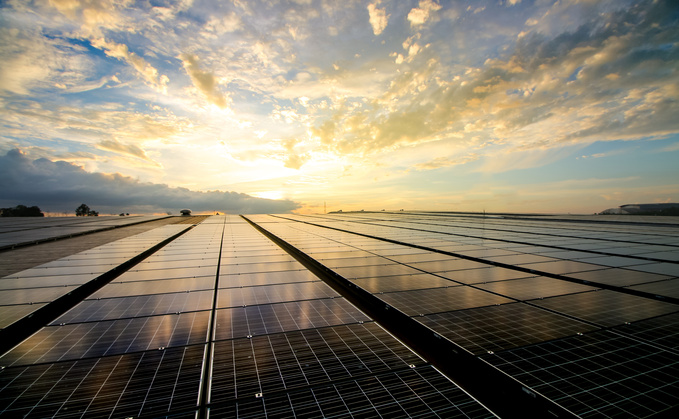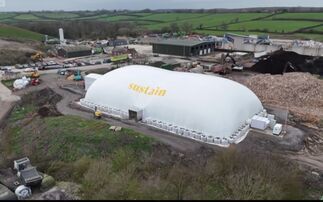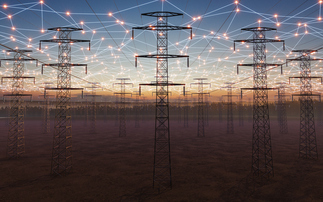
Partner Insight: 2023 was the warmest year since global records began and climate-related catastrophes are on the rise. Against this worrying context, Vodafone UK’s chief corporate affairs & sustainability officer, Nicki Lyons, explains the importance of the company's new Carbon Reduction Plan.
At work, we all like quick wins. But when it comes to the most important issues, like reaching net zero emissions, there's often no silver bullet for overnight success.
While judging performance on immediate effect or across short time frames is necessary for some parts of the business, sustainability often requires a longer-term approach.
That doesn't mean companies shouldn't bake near-term goals into their sustainability plans, of course. It does mean, however, that more immediate aims should always be placed in the context of a longer-term shift.
After all, that's what we are dealing with here: an energy transition.
Our Carbon Reduction Plan
This was our approach when plotting out Vodafone UK's Carbon Reduction Plan, which I'm happy to say has now launched.
Because, while the plan charts our goals between now and 2027, these are firmly set within Vodafone's wider, global ambition to reach net zero by 2040.
With that marathon-esque target in mind, we can better prepare ourselves to reach it sustainably, rather than burning out along the way. As such, I don't see the next 15 years as one long sprint, but more of a relay-style race.
With well-defined steps, we can pace ourselves more effectively. We can share the burden across the various areas that contribute to our carbon footprint. And, in turn, create a more sustainable business that works for both planet and people.
Scope 1 and 2 emissions
In fact, we've already been doing this. Taking our base year as the financial year ending 31 March 2020, Vodafone UK's total operational emissions have since fallen by an astounding 93 per cent.
This covers Scope 1 and 2 emissions, equating to 86,685.58 tonnes of carbon dioxide equivalent (CO2e) – roughly the annual energy use of 11,305 homes.
So, how have we done this? Well, returning to the relay analogy, it's the result of quite a few complementary actions.
In February, we completed our 3G switch off, with the last remaining radio frequencies repurposed to strengthen 4G and 5G services.
Not only does this mean we can provide faster data services and clearer voice calls to more of the UK but, because data transmission over 5G uses seven per cent of the energy to send the same amount of data than 3G would, it also helps reduce energy usage*. In turn, lowering emissions.
We have installed 650-kilowatt peak of rooftop solar panels across three mobile telephone exchanges. These should generate 550,000 kWh of renewable electricity annually, supplying around 12 per cent of each site's energy requirements.
On the road, we are increasing the proportion of electric vehicles (EV) in our company fleet, having removed all internal combustion engine cars in 2021 and hybrid vehicles the following year, while continuing to invest in more charging points across our estate.
Meanwhile, EVs are now the only choice for Vodafone employees who make use of our company car scheme.
Scope 3 emissions
Of course, these are just some of the actions being taken as part of our Carbon Reduction Plan and, while I'm happy to celebrate these successes, I'm also keen to ensure we do not become complacent.
After all, we are far from finished. Scope 3 emissions remain a challenge, for example, especially since we work with around 2,000 suppliers.
With less direct control over Scope 3 activities, and greater uncertainty over data availability, we are continuing to implement better systems for measuring and reducing these emissions.
This ranges from internal engagements, like joining the Joint Alliance for CSR, the GSMA for Wider Scope Sustainability Initiatives and the Digital Connectivity Forum, to offering small and medium-sized enterprise (SME) suppliers an hour of free net zero consultancy.
It also involves a new 20 per cent weighting for environmental and social criteria as part of our supplier evaluation RFQ process, which should help reduce value chain emissions. Plus, this is the first year in which our global Scope 3 data is being managed through a dedicated platform to assist long-term decision making.
Likewise, our internal CO2 analytics dashboard continues to help supply chain teams view and track progress against reduction targets, while identifying which carbon-intensive suppliers, markets and categories may require different approaches.
Sustainability by design
Though there may be bigger contributors, the information and communications sector that Vodafone falls under remains responsible for between 1.8 per cent and 2.8 per cent of global greenhouse gas emissions.
As a result, we are open about the role we play in supporting society's net zero ambitions. More than that, though, we are actively working towards it.
After all, the digital connectivity services and technology products that we provide will be some of the key enablers of the transition itself, whether that's Internet of Things advancements for businesses or refurb and trade-in offers for individual customers.
For more information, read Vodafone UK's full Carbon Reduction Plan
Stay up to date with the latest news from Vodafone by following us on LinkedIn and Twitter/X, as well as signing up for News Centre website notifications.
Nicki Lyons is chief corporate affairs & sustainability officer at Vodafone UK.
This article is sponsored by Vodafone.
(*Figures represent typical average, real-world cases as per Vodafone proprietary research into energy considerations for 5G deployments, where 3G consumes 110Wh of energy per GB of downloaded data and 5G uses Wh.)







